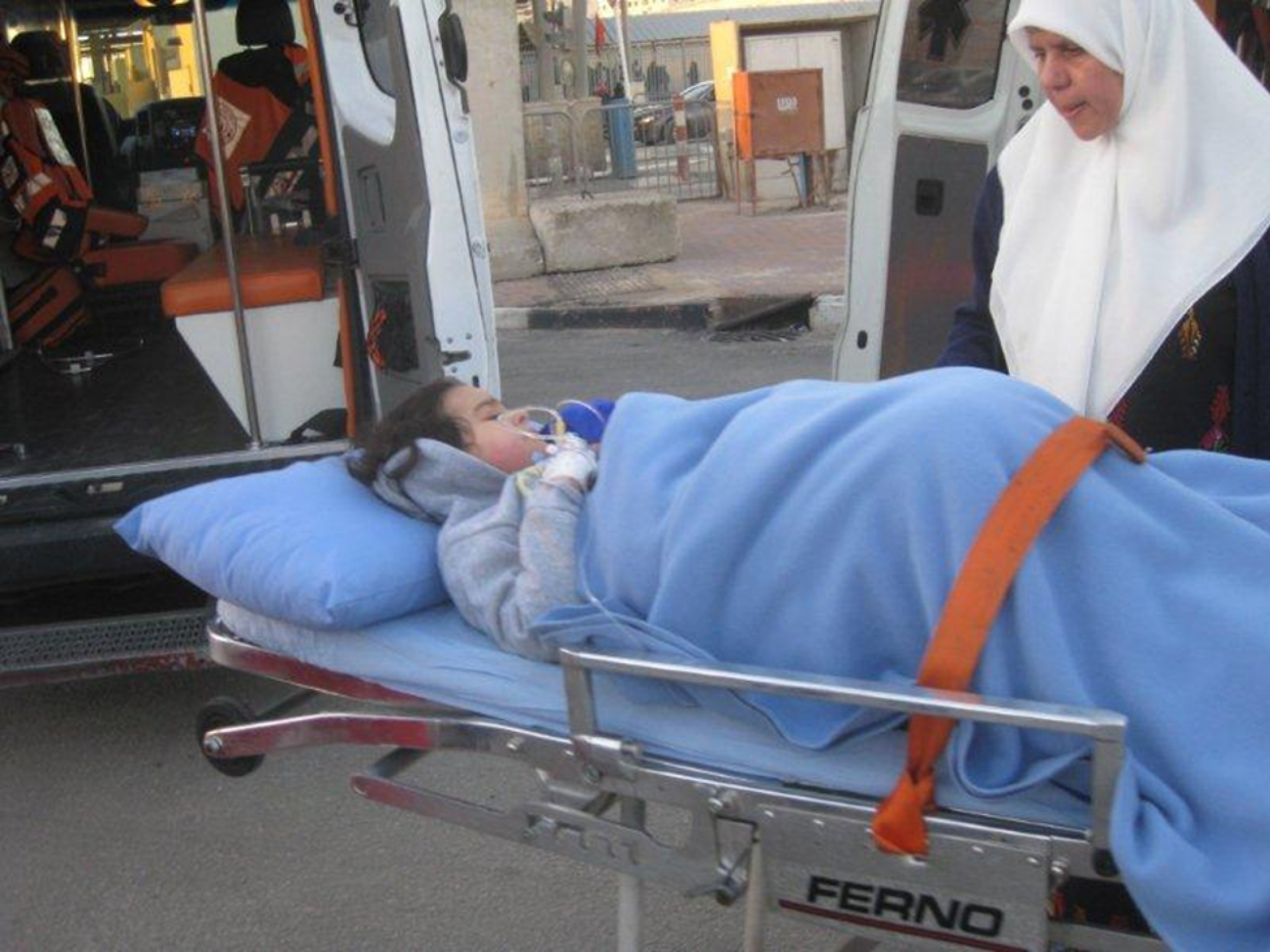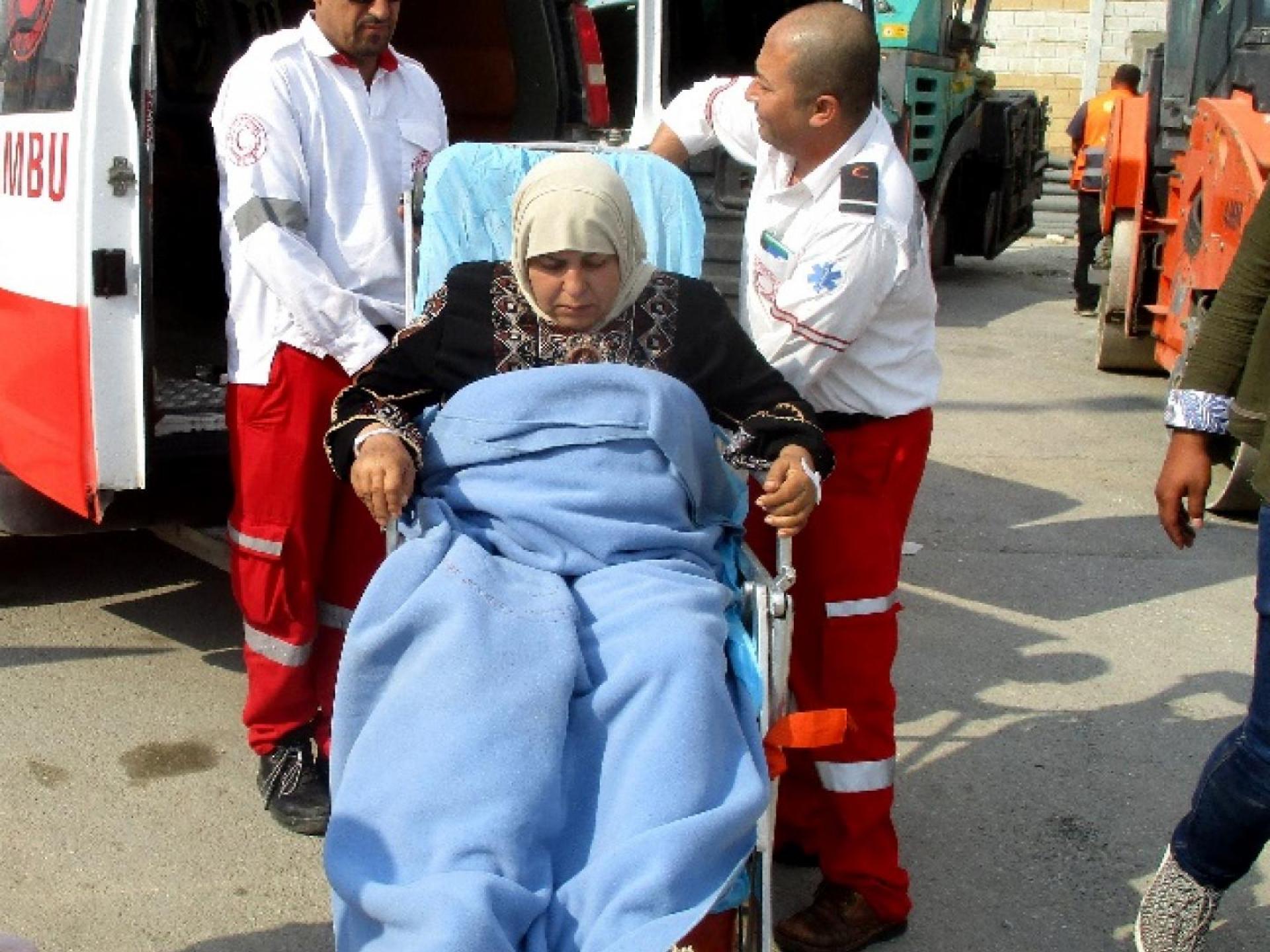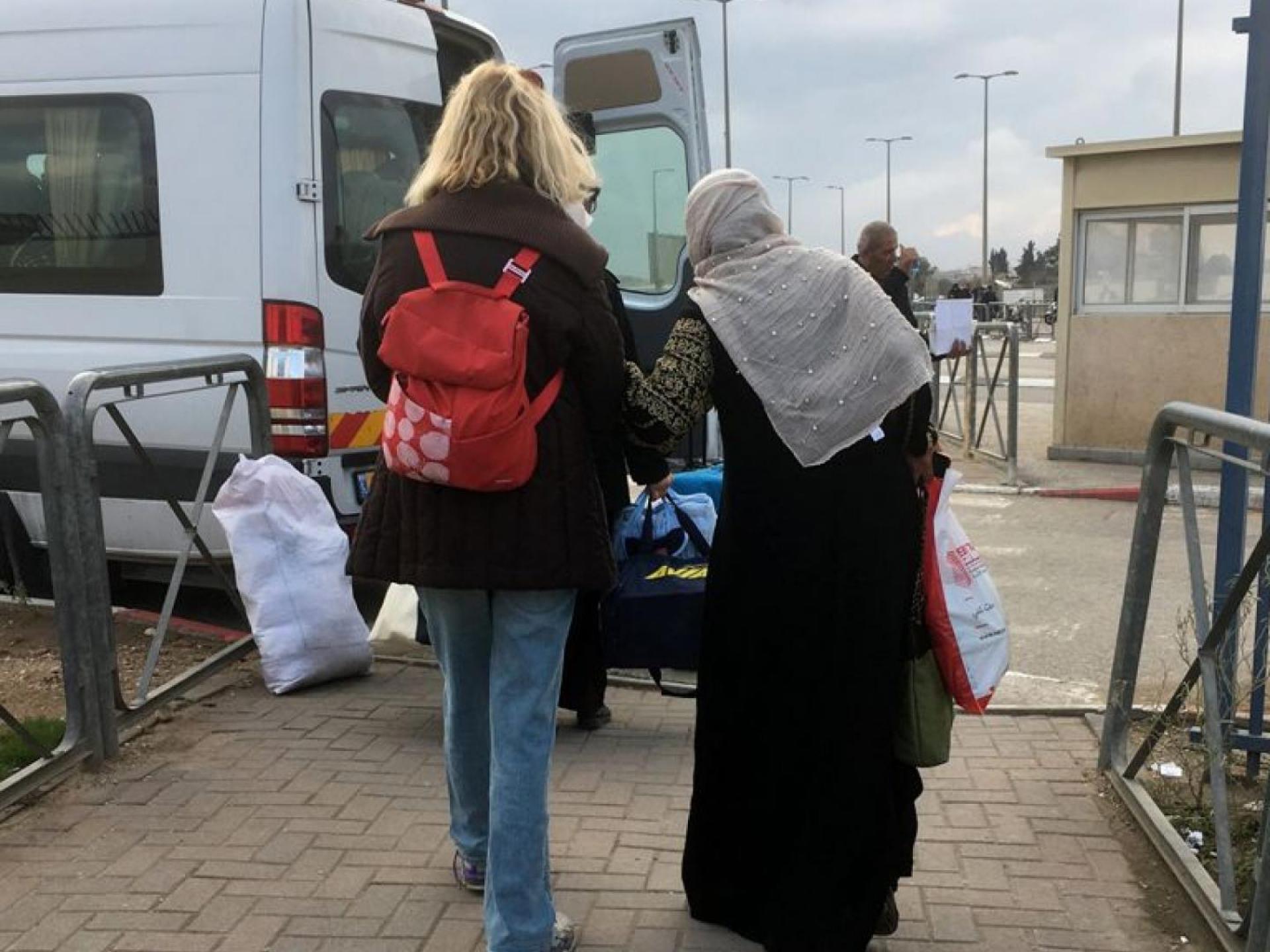The Tragic story of a Nine-Year Old Boy
Nine-year-old E. from a village in the center of the West Bank was hit in the head by a sniper bullet. He was rushed to a local hospital and received a medical evaluation. After a few hours, the attending physician explained to the parents that the child had to be transferred to a central hospital in Israel where more acute care could be provided. Near midnight, it was decided that the child was stable enough to be transferred to the Israeli hospital. The Civil Administration coordinator managed to find a bed for the boy in the intensive care unit in the Israeli hospital. It was close to midnight by the time the Red Crescent ambulance took the boy and his father and headed to the checkpoint. There, the boy and his father were transferred to an Israeli ambulance. At the next checkpoint the ambulance was stopped and the guards ordered the father to get out of the ambulance. His ID card, telephone, a work permit and a permit to escort the patient were taken. The father was forced to wait outside the ambulance as the child hovered between life and death while under the care of an Israeli paramedic. For 30 minutes nothing happened. The desperate father took courage and walked over to the checkpoint terminal where it appeared that the entire team was on a coffee break. The child could wait…
coordinator managed to find a bed for the boy in the intensive care unit in the Israeli hospital. It was close to midnight by the time the Red Crescent ambulance took the boy and his father and headed to the checkpoint. There, the boy and his father were transferred to an Israeli ambulance. At the next checkpoint the ambulance was stopped and the guards ordered the father to get out of the ambulance. His ID card, telephone, a work permit and a permit to escort the patient were taken. The father was forced to wait outside the ambulance as the child hovered between life and death while under the care of an Israeli paramedic. For 30 minutes nothing happened. The desperate father took courage and walked over to the checkpoint terminal where it appeared that the entire team was on a coffee break. The child could wait…

When the father asked the guards to let him cross he was asked: “Where are you going?" In desperation he answered, “At this hour, do you think I’m going to work?” And this is when he learned that he is blacklisted.
The father was shocked. He had been the holder of a valid work permit, that is, until his boy was shot several hours earlier while sitting by his side at the door of their home. The boy had done nothing to endanger or jeopardize the soldier who shot him, and immediately the father was being punished with a blacklisting status.
In one fell swoop the child had been critically wounded and the family was punished without even a legal or any other inquiry about the incident. While the parents desperately tried to deal with the boy’s severe injury the efficient occupation bureaucracy took action and automatically punished the entire family. All were now denied entry to Israel, denied the opportunity to come to the hospital to take turns at the boy’s bedside. Now, every visit of the father or the mother to the hospital requires an exhaustive and tedious application for a special entry permit. And we must not forget that the boy was injured by an Israeli sniper.
As luck would have it, the father had the phone number of the MachsomWatch hotline. After our intervention, the ambulance and the father were granted permission to continue to hospital. The journey had resulted in a 3-hour delay. It was now 3:00 am and the child's condition had deteriorated. And what would have happened without our intervention?
Universal Right to Health
Health is a fundamental human right as recognized by Article 25 of the United Nation’s 1948 Universal Declaration: "Everyone has the right to a standard of living adequate for the health and well-being of himself and of his family, including food, clothing, housing and medical care and necessary social services."
The right to health was adopted by the United Nation’s Committee on Economic, Social and Cultural Rights in 1976 and approved by the State of Israel in 1991. This covenant recognized the right "... to enjoy the highest level of physical and mental health possible."
The right to health now also includes access to health services from a broader perspective. Access to medical services for patients and their escorts has been at the core of MachsomWatch activities during all the years we have assisted Palestinian patients who live under the Occupation.
Health Services – The Reality
According to international law, the entire West Bank and the Gaza Strip are still under the responsibility of the State of Israel and as a sovereign power it is responsible for the supply and access to health services.
The Palestinian Authority, which holds the administrative control of Area A, has committed to providing health services in accordance with the Oslo Accords. However, the State of Israel, as the sovereign power, prevents access to diagnostic imaging, surgical procedures and cancer treatments because it controls the import of medical equipment, construction, freedom of movement and water and electricity supplies and thus keeps health services in a constant state of scarcity.
Preventing the development of Palestinian health services and the lack of universal health insurance services in Palestinian society perpetuate and encourage the constant dependence on Israeli health services. The Palestinian Authority funds the high cost of hospitalization and medical care for Palestinian patients in need of advanced medical service which are only available in Israel. The high cost of these services also provides significant income to Israeli hospitals. During periods of political confrontation, the Authority occasionally stops funding Palestinian patients as a means to pressure the State of Israel.

Palestinian patients and those who accompany them need an entrance permit. It is the Civil Administration who provides medical coordination services for this purpose. The special approval depends on the approval of the GSS who seeks to recruit collaborators among those in need of medical services. In this way, the need for health care has also turned into a means of control by the Occupation forces.
who provides medical coordination services for this purpose. The special approval depends on the approval of the GSS who seeks to recruit collaborators among those in need of medical services. In this way, the need for health care has also turned into a means of control by the Occupation forces.
Makassed Hospital, the largest, most advanced and best-equipped Palestinian hospital, is located in East Jerusalem and it serves the Palestinian population. In order to reach Mukassed from the West Bank, Palestinians must obtain special permits for entry into Israel. Is there a greater absurdity than this? This is the clearest example of the state of inaccessibility of medical services to Palestinians. While Israel seeks to remain distant and not be responsible for providing health care for Palestinians it continually increases control of access to health care especially for those in critical need.

